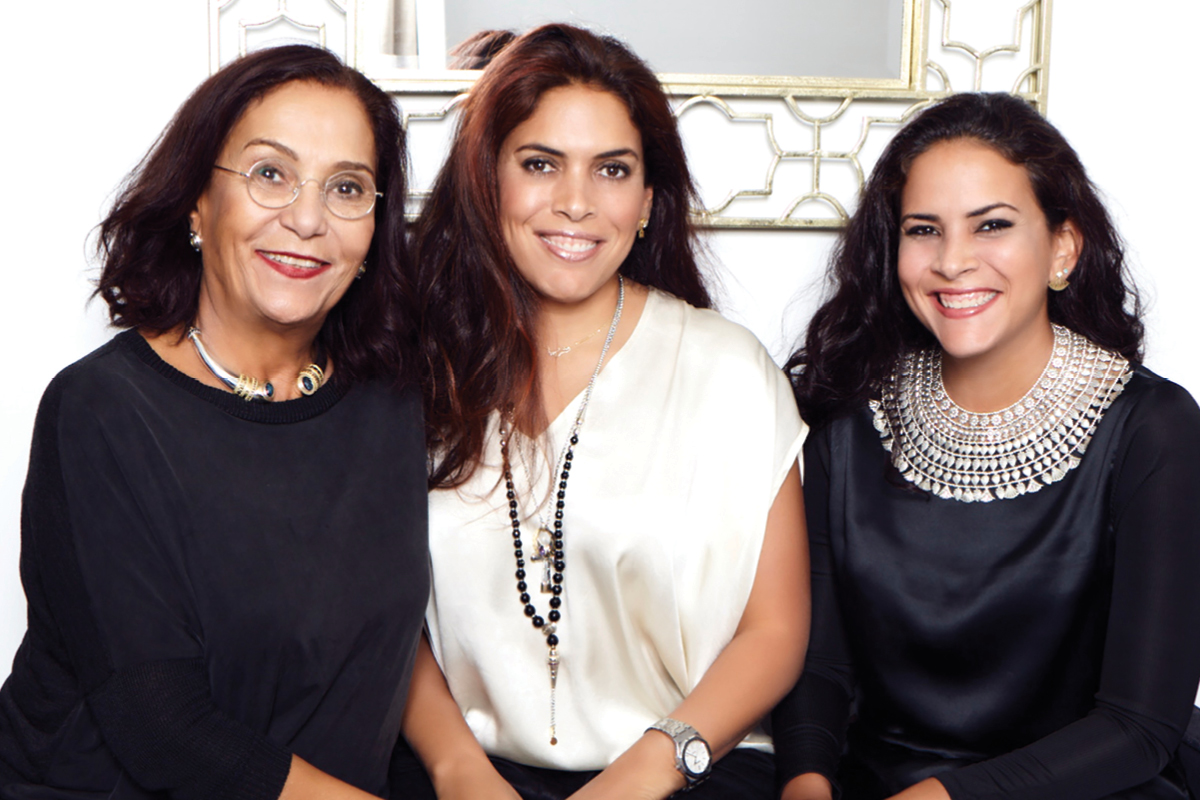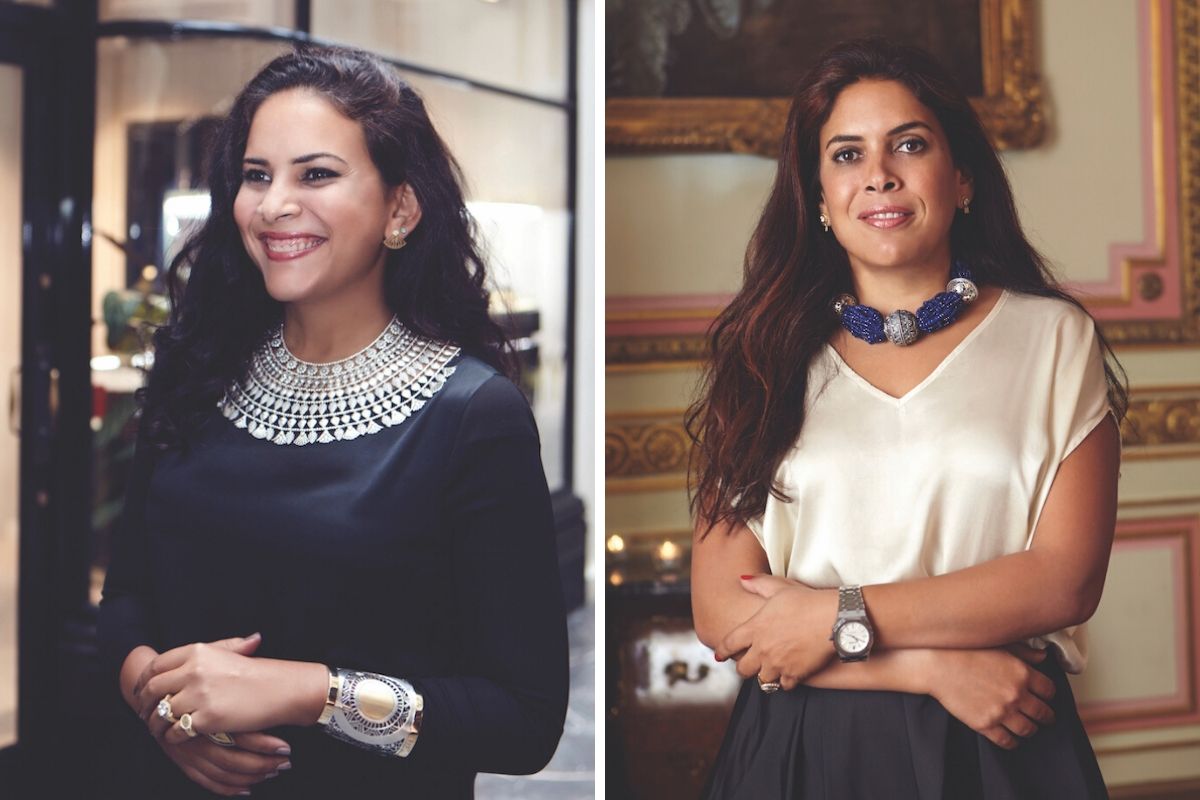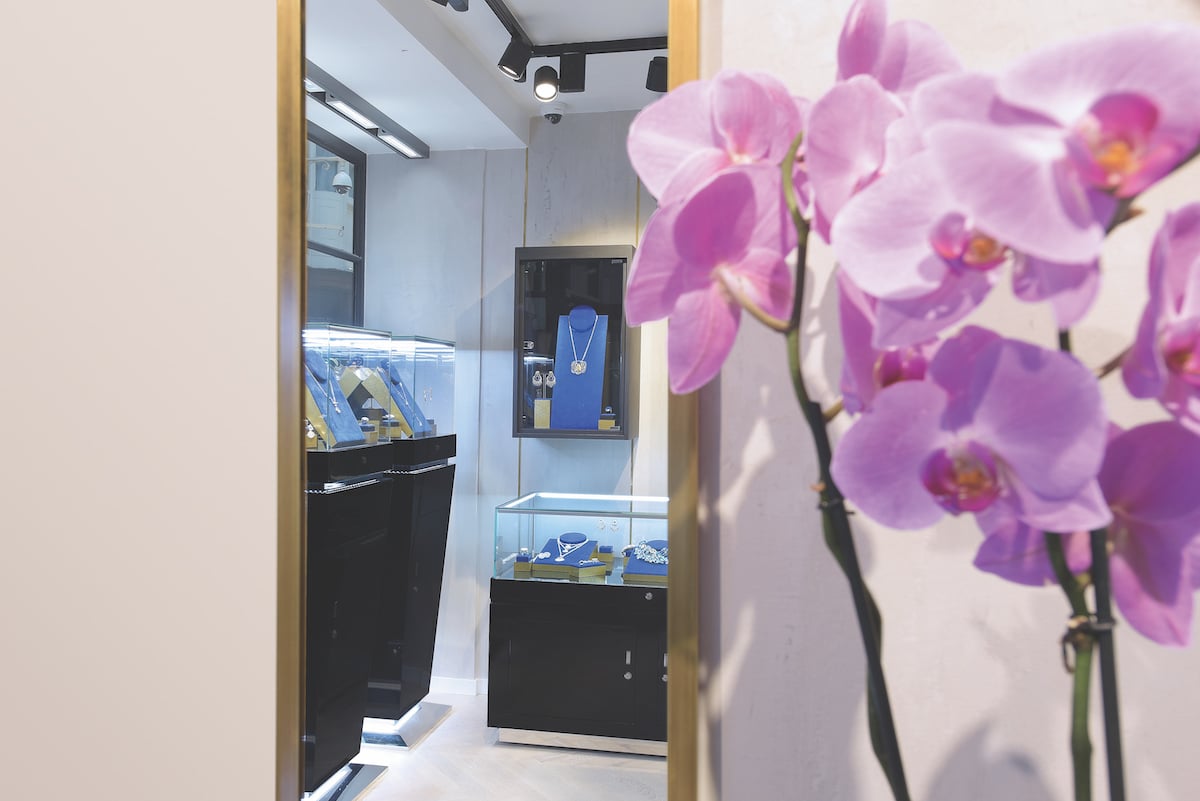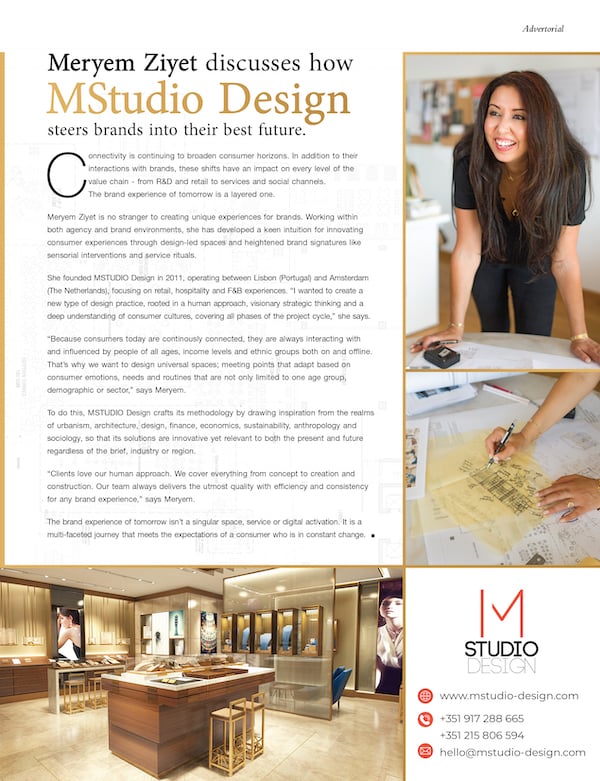Fifty years ago, Azza Fahmy, driven by a strong passion for jewellery design, boldly ventured into a bustling market in Cairo and convinced a master goldsmith to take her on as an apprentice. She became the first woman in Egypt to enter the jewellery trade this way.

Azza was simultaneously juggling a full-time job and bringing up two young daughters as a single mother. Despite the challenges, she persevered with the apprenticeship for two years before deciding that she was ready to strike out on her own.
Today, Azza Fahmy’s namesake brand is a household name in Egypt and has an international retail presence. Following in their mother’s footsteps, Azza’s two daughters have joined the business.
Elder sister Fatma Ghaly focuses on business development as CEO, while younger sister Amina Ghaly is Head of Design. They share their insights about the business and their journey with The CEO Magazine.
Both of you grew up in the business. Tell us about your childhood memories of jewellery.
Fatma: My mother used to set us to work in the beading section in the workshop. It always made me feel accomplished to work there because if we followed the directions correctly, we would have a piece of completed jewellery at the end.
Amina: Yes, we had diagrams in front of us and we had to bead according to the diagrams. They were like puzzles. I also remember going with our mother to the seaside in summer and polishing all her old silver jewellery with sand from the sea. At home, Fatma and I used to chew on honeycombs while watching TV, and the beeswax left over was used for lubricating our metal-cutting tools.

What is the biggest lesson you’ve learned from your mother?
Amina: The importance of evolution. My mother has been in this field for 50 years, but she’s still keen to take courses and listen to the younger generation. She’s always evolving as a human being as well as a designer, always moving forward and bettering herself. She also taught me that there are no barriers and nothing’s impossible. She has a persistence that comes with passion.
Fatma: Yes, what Amina said about persistence is very true. I remember my mother saying that when she founded the jewellery line, it was like a train moving on a track. Many things happened, and many things changed, but she just kept going with the belief that she was going to make it.
What is the best decision you have made for the business?
Fatma: Two or three years after I joined Azza Fahmy, we decided to launch a limited-edition fine jewellery line. It was a very big decision for us because it wasn’t something we were known for at that point and it required a big investment in raw materials. We launched the collection in December 2002. It was the first time we used only gold with precious stones and had pieces at a higher price point, yet the collection almost sold out. This is one decision I will always remember.

What do you think your customers love about your jewellery?
Amina: Our jewellery are pieces of luxury, but also very practical. We take into consideration the modern-day woman, who has a full-time job and is engaged in many activities. We ask ourselves how such a lifestyle can accommodate fine jewellery; how jewellery can be made more practical and wearable, so it isn’t just something the woman beautifies herself with, but rather something that she really looks forward to putting on because it’s so easy. Every piece we make goes through many test wears. I get the girls in the workshop to put on the jewellery and run with it, sit back with it on and do all the things women do today to see how the piece falls on them, and if it’s totally comfortable to wear.
“Today, Azza Fahmy’s brand is a household name in Egypt and has an international retail presence.”
What’s your favourite piece of jewellery?
Amina: My mother always wears a necklace engraved with a quote from Lebanese-born poet and artist Gibran Khalil Gibran. She’s been wearing it for 30 years now, so it has a lot of sentimental value. For something more recent, I would choose the Wings Collar, which I designed a few years ago. We took a very ancient Egyptian motif, the vulture, and made it very modern.
Fatma: I like the tassel earrings from our Wonders of Nature Collection in 2017. I love earrings, as I find that they are the quickest way to change up an outfit.
Proudly supported by:



